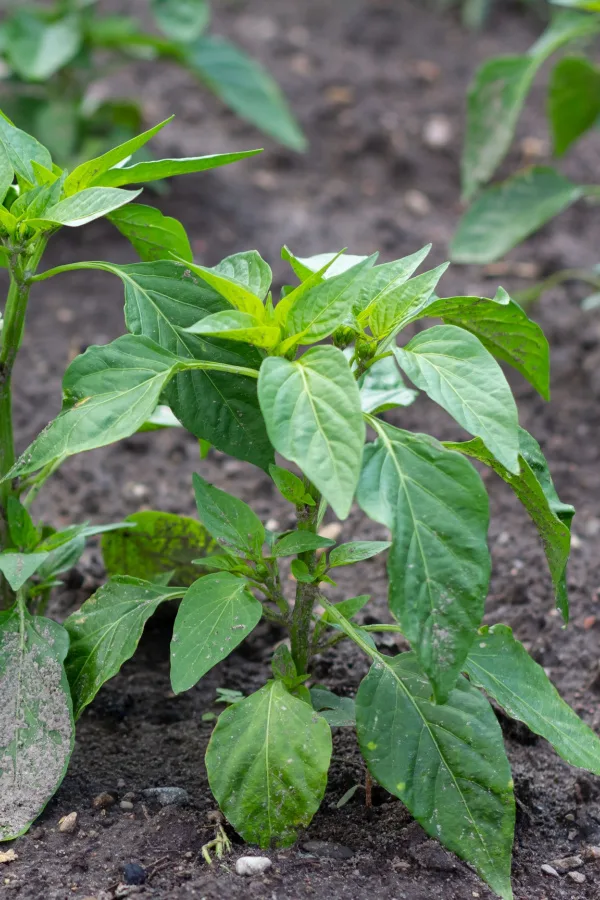Discover the Best Fertilizers for Peppers: Top Picks for Optimum Growth
Discover the Best Fertilizers for Peppers: Top Picks for Optimum Growth
Blog Article
Organic Vs. Synthetic Fertilizers: Which Is Best for Supporting Healthy And Balanced Pepper Plants?
In the world of nurturing healthy pepper plants, the choice in between synthetic and organic plant foods stands as a pivotal decision with far-ranging effects. While both choices objective to offer important nutrients to support plant development, the nuances of their impact on the soil, plant health, and the environment trigger a dispute that echoes throughout the horticulture neighborhood. Comprehending the distinct benefits and potential pitfalls of each fertilizer kind is vital for pepper growers looking for to enhance their yields while keeping a sustainable and eco-conscious technique.
Benefits of Organic Plant Foods
Organic fertilizers supply an environmentally-friendly and sustainable technique to nourishing pepper plants, providing important nutrients without the use of artificial chemicals. These natural fertilizers are stemmed from organic resources such as compost, manure, bone meal, and algae, promoting dirt health and biodiversity. Unlike artificial fertilizers, organic alternatives release nutrients gradually, ensuring a well balanced and constant supply for pepper plants to flourish.
One substantial benefit of organic fertilizers is their capacity to improve dirt framework and water retention. By enhancing soil wellness, organic fertilizers advertise advantageous microbial activity, which helps in nutrient uptake by pepper plants. In addition, organic fertilizers minimize the threat of chemical run-off, safeguarding water resources from air pollution and protecting the setting.
Furthermore, organic fertilizers add to lasting soil fertility by promoting the growth of beneficial soil microorganisms. These microorganisms aid break down organic matter, releasing nutrients in a type that is conveniently accessible to pepper plants. best fertilizers for peppers. By fostering a healthy dirt ecological community, organic fertilizers sustain lasting pepper farming techniques that benefit both plants and the environment
Drawbacks of Synthetic Fertilizers
Artificial plant foods, in comparison to their natural equivalents, present numerous negative aspects when made use of to nourish pepper plants, impacting both plant health and ecological sustainability. One major drawback of synthetic plant foods is their propensity to leach nutrients from the soil swiftly.
Moreover, the overuse of artificial plant foods can contribute to water air pollution. Excess fertilizers not taken in by plants can clean away right into water bodies, causing eutrophication, where algae flowers deplete oxygen degrees in the water, harming marine life. Moreover, synthetic plant foods are usually originated from non-renewable resources, such as nonrenewable fuel sources, adding to carbon emissions and ecological degradation throughout their production.
Nutrient Absorption Contrast
Effective nutrient absorption plays a critical function in the total health and wellness and growth of pepper plants. When contrasting organic and synthetic fertilizers in regards to nutrient absorption, natural fertilizers have the benefit of providing a much more balanced and slow-release resource of nutrients (best fertilizers for peppers). Organic plant Clicking Here foods include a range of macro and trace elements that are not only valuable for the plants but likewise advertise healthy and balanced soil microbial activity, which assists in nutrient uptake. On the various other hand, synthetic fertilizers usually offer a quick launch of nutrients, which can bring about leaching and runoff, leading to reduced nutrient absorption rates by the plants.
Furthermore, organic fertilizers enhance soil structure and water retention capability, allowing pepper plants to access nutrients more effectively. This better dirt high quality promotes root advancement, making it possible for much better nutrient absorption. Artificial plant foods, although originally enhancing plant growth due to their high nutrient focus, may impede lasting Click Here nutrient absorption by derogatory soil health and wellness with time.
Ecological Impact Factors To Consider

On the other hand, artificial fertilizers, although usually even more focused and immediately readily available to plants, can have harmful effects on the atmosphere otherwise applied correctly (best fertilizers for peppers). Their production requires high energy inputs, bring about greenhouse gas exhausts and adding to climate adjustment. Additionally, the overflow of excess artificial plant foods can contaminate water resources, causing eutrophication and damaging marine environments.
Best Plant Food Practices for Peppers
When feeding pepper plants, maximizing nutrient uptake and minimizing ecological impact are vital considerations. To attain this, it is important to follow best fertilizer techniques tailored to the particular demands of pepper plants. One crucial practice is investigate this site to do a dirt test before using any type of plant foods. This examination can establish the pH degree of the dirt and determine any kind of nutrient shortages, leading you in choosing one of the most ideal fertilizer formula.
Another essential practice is to fertilize pepper plants at the correct time. Usually, peppers profit from getting fertilizer at planting and after that once more when they begin to flower. Over-fertilizing can result in nutrient discrepancies and hurt the plants, so it is important to comply with advised application rates.
Furthermore, selecting a well balanced plant food with an NPK proportion that matches pepper plants' demands is basic. Eventually, integrating synthetic and organic fertilizers judiciously can assist support healthy pepper plants while minimizing environmental influence.
Verdict

Organic fertilizers supply a sustainable and environmentally-friendly strategy to nourishing pepper plants, providing crucial nutrients without the use of synthetic chemicals. Unlike synthetic fertilizers, natural alternatives release nutrients gradually, making certain a well balanced and constant supply for pepper plants to prosper.
Artificial fertilizers, in comparison to their natural counterparts, present different disadvantages when utilized to nourish pepper plants, affecting both plant health and environmental sustainability. When comparing artificial and organic plant foods in terms of nutrient absorption, organic plant foods have the advantage of supplying a much more well balanced and slow-release resource of nutrients.Additionally, organic plant foods improve soil structure and water retention ability, enabling pepper plants to accessibility nutrients much more effectively.
Report this page